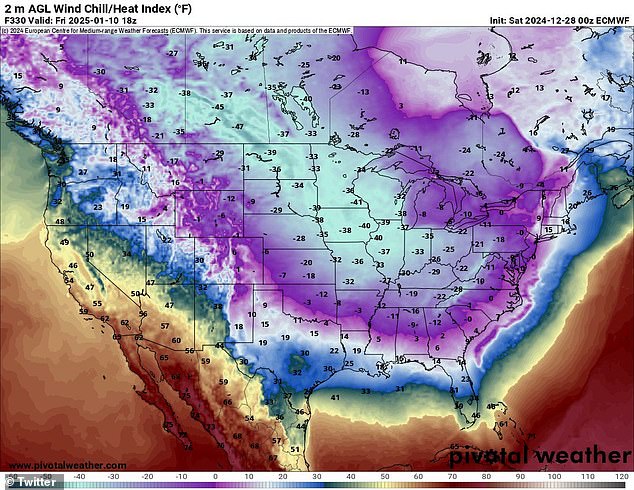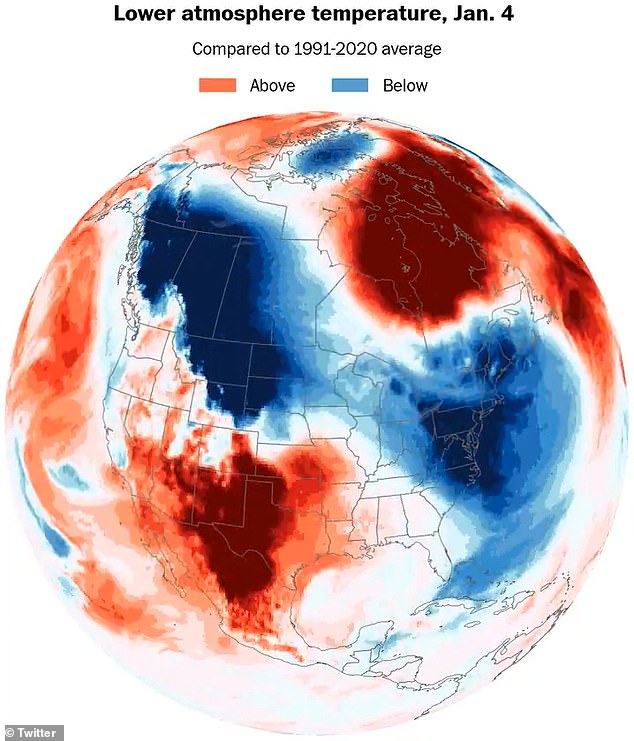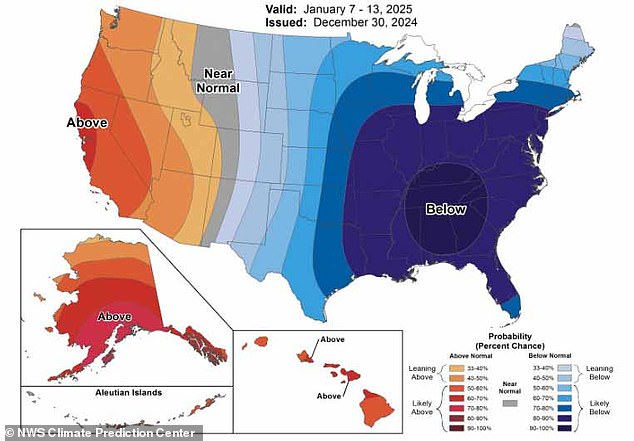Polar vortex heading for US sending temperatures plunging and making January the coldest for a decade
By SABRINA PENTYPublished: 05:15 EST, 31 December 2024 | Updated: 05:40 EST, 31 December 2024
A polar vortex headed for the US could bring cold winds and low temperatures this week, making January the coldest month in over a decade.
According to the National Weather Service, the arctic blast will affect a large swathe of the country, arriving in the northern Rockies and expected to have spread to the East Coast by New Year's Day.
'A significant pattern change is expected across much of the country as an Arctic Outbreak is forecast to spread form the Northern Plains to the south and east, leading to exceptionally high probabilities of below-normal temperatures expected across much of the East', the NWS said.
The plunge will bring wind chills across the Midwest with temperatures dipping below zero in at least 30 states.
'The coldest air of the season to date and dangerous wind chills chills are likely across many areas of the Southeast', the NWS warned.
In some areas, temperatures are forecasted to reach an average of around 20 degrees, while freezing conditions in the Gulf coast and even Florida could be expected.
Snowfall is also possible across parts of the Southern Plains and the Southeast with the potential for heavy snowfall expected in the Appalachians, Ohio Valley, the Great Lakes and the Northeast.
A further drop in temperatures is expected next week, and below normal temperatures are predicted to affect central and eastern US during much of January.

January's freezing temperatures will come after an unusually warm end to the month of December across the country

A polar vortex headed for the US could bring cold winds and low temperatures this week, making January the coldest month in over a decade

According to the National Weather Service, the arctic blast will affect a large swathe of the country, arriving in the northern Rockies and expected to have spread to the East Coast by Wednesday



